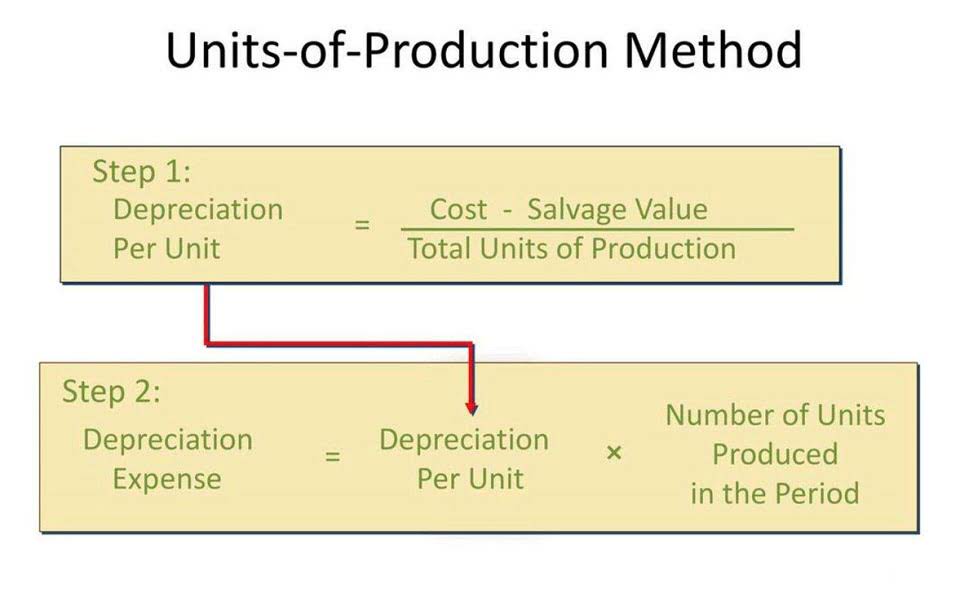Message from the ITAA President International Transactional Analysis Association
Content

Even at this early juncture and while still working to become a psychoanalyst, his writings challenged Freudian concepts of the unconscious. This article is written like a personal reflection, personal essay, or argumentative essay that states a Wikipedia editor’s personal feelings or presents an original argument about a topic. When was the last time you felt calm and content in the here and now?
Every individual has transactions with others and within the self. The word ‘transaction’ stands for communication or interaction between two people. This innovative book presents state-of-the-art thinking on using transactional analysis to change the structure, relationships and culture in organizations. This can be positive; for instance feeling excited about an upcoming holiday. Often though, it’s expressed negatively in the form of difficult behaviour, disagreeing with others, wanting to get their way, rude behaviour or anger and rage. The Parent ego is the deeply rooted voice of authority that people think, feel and express in the way parents do towards their children.
Three Types of Transaction
Interacting with someone from the state of child or parent mode, is often a default or unconscious reaction that is used, and it takes conscious awareness to be able to bring ourselves back into adult mode and interact from that place instead. Thomas Harris’s successful popular work from the late 1960s, I’m OK, You’re OK, is largely based on transactional analysis. A fundamental divergence, however, between Harris and Berne is that Berne postulates that everyone starts life in the “I’m OK” position, whereas Harris believes that life starts out “I’m not OK, you’re OK”. In practical application, it can be used in the diagnosis and treatment of many types of psychological disorders and provides a method of therapy for individuals, couples, families and groups. Diagram of concepts in transactional analysis, based on cover of Eric Berne’s 1964 book Games People Play. The origins of transactional analysis can be traced to the first five of Berne’s six articles on intuition, which he began writing in 1949.
What is an ego state disorder?
Ego states develop as a way to cope with severe traumatic events in childhood. When a child is under distress, repeatedly, the child does not develop a healthy sense of self or ego. Instead, the ego splits off into different states that are connected to the 'fight-flight-freeze' response.
Or a child, using the Parent ego-state, could scold her actual parent as though the parent were a Child. If you love browsing and reading self-help literature, you’ve probably come across the “I’m okay, you’re ok” and “Games People Play” line of books.
Games People Play
These ego-states may or may not represent the relationships that they act out. For example, in the workplace, an adult supervisor may take on the Parent role, and scold an adult employee as though they were a Child. Or a child, using their Parent ego-state, could scold their actual parent as though the parent were a Child. As per Berne’s definition, ‘an ego state is a system of feelings accompanied by a related set of behavior patterns.’ He recognized that all of us go through three different ego states which are named Parent, Adult, and Child. Regardless of whether we are aware of it or not, our ego states get activated all the time.
Do all humans have ego?
Everyone has an ego. There are many definitions of the ego, but to put it simply, it's your sense of personal identity or feelings of self-importance. It helps you to identify your 'uniqueness', to stand up for yourself and to put plans into action.
Therefore, the self-confidence and mental aspect of the criminals, especially imprisoned women should be improved, so that they can restart a new and happy life after their imprisonment . Transactional analysis views social transactions as a basis for understanding people’s behaviour and motivations. Part 1 will introduce Transactional Analysis, the different ego states, and common transactions.
Corporate Communication Games
Humans have a continual need for strokes, which can be understood as simple units of interpersonal recognition. Managers and supervisors can create a positive work environment and positive relationships with employees by giving constant strokes. Examples include verbal praise of an employee, compliments or positive feedback about a project. Strokes can also be physical, such as a handshake or pat on the back. Negative work attitudes may ensue if employees experience negative strokes, such as constant criticism from an overbearing boss. For example, a supervisor communicates in the parent-to-child ego when he reprimands an employee for being late.
People will also explore whether or not they are modeling/ copying how they observed their parents and authority figures behaving. This type of interaction is highlighted in the image showing the dashed line. An example of this would be if someone’s teacher or friend said ‘You can choose to study subjects that lead to becoming a doctor, however it is very hard and requires lots of intelligence’. People are in this state when they are reactive to a situation and act out of their conditioning, copying how their parents treated them and others, instead of analysing each situation afresh in the here and now. Singer/songwriter Warren Zevon mentions transactional analysis in his 1980 song “Gorilla, You’re a Desperado” from the album Bad Luck Streak in Dancing School. Unfortunately I/ we cannot control who has and has not commented – this post only went up late in the day UK time so has not been read that many times yet – I am sure the comments will grow.
Types of Transactional Analysis
However, this potential is often hindered by repetitive patterns that are based on our childhood experiences. These repetitive patterns of behavior, thoughts, and feelings are known as unconscious scripts. We can and we need to work through these unconscious scripts to build a great life. The transactional analysis theory was developed by Eric Berne, a famous psychiatrist, in the 1960s. He combined Sigmund Freud’s theories of personality along with his observations on human interactions to frame the transactional analysis model. According to Berne, facial expressions, gestures, body language, and tone may be regarded as more important in a conversation than spoken words. It was developed as an approach to psychotherapy by Dr Eric Berne, a Canadian Psychiatrist who had become increasingly frustrated with approaches to psychotherapy in the late 1950s.
The goal of TA is to help clients strengthen theirAdult Ego Stateand enhance their communications with other people. The best way to learn and develop your understanding of https://www.bookstime.com/ is to apply it to your everyday existence and see what you notice.
Research conducted by Spitz showed that infants who received less cuddling, handling, and touching were more likely to experience physical and emotional challenges. Berne described this innate need for social recognition as recognition-hunger, defining the fundamental unit of social action or recognition as a stroke. The key to successful person-to-person communication generally lies in identifying which ego state initiated the transactional stimulus and which ego state provided the transactional response. Berne also took special note of the complexities of human communication. He highlighted the fact that facial expressions, gestures, body language, and tone may be regarded as more important by the receiver than any spoken words. In his book Games People Play, he noted that people may sometimes communicate messages underpinned with ulterior motives.
- In the second example, Person 1 is looking for sympathy from their friend — the Child looking for support from a nurturing Parent.
- Have you ever responded to a situation quickly without thinking?
- The surgeon’s Adult holds out his/her hand, providing the transactional stimulus to the nurse.
- This has obviously failed to materialize, despite that book spending two years on the best seller lists.
They are always a substitute for a more genuine and full adult emotion and response which would be a more appropriate response to the here-and-now situation. Activities in this context mean the individuals work together for a common goal. In contrast to Pastimes, there is a meaningful purpose guiding the interactions, while Pastimes are just about exchanging strokes. Strokes can then be given in the context of the cooperation. Thus the strokes are generally not personal, but related to the activity.
In W. Dryden (Ed.), Dryden’s handbook of individual therapy (5th ed., pp. 256–286). Another pro of TA is that it helps to improve communication skills and relationships with others, whilst decreasing conflicts, and these benefits are supported by current research. The 8 sessions led to increased marital intimacy and satisfaction, and that the participants reported been able to apply the skills and knowledge learned in TA sessions to other areas of their life also. The couples originally had very low scores of rated intimacy levels, when tested again after the 8 TA sessions they showed significantly increased intimacy levels between each 15 couples, this increase remained stable when retested 3 months later. TA can be used in short term therapy, in a brief solution-focused way, or a more in-depth long-term way, with the aim of gaining more insight into our unconscious world, and improving our relationships with others and reducing conflict.
Before Berne first published his theories on Transactional Analysis, he spent years formulating the framework of this approach. The key to this methodology was a transaction – the fundamental unit of social intercourse. Berne also defined a stroke – the fundamental unit of social action . When this complementary transaction happens from adult-to-adult state, it is thought to be the best type of communication, as it is respectful and reduces conflicts. The three states of child, parent and adult effect how we receive, perceive and respond to information or communication from someone. The free child ego state can be creative, spontaneous, playful and pleasure seeking.
More technically, a racket feeling is “a familiar set of emotions, learned and enhanced during childhood, experienced in many different stress situations, and maladaptive as an adult means of problem solving”. Superficially, this game can resemble Adult to Adult interaction , but more often, according to Berne, the game is played by Black’s helpless Child, and White’s lecturing Parent ego states. Berne argued that games are not played logically; rather, one person’s Parent state might interact with another’s Child, rather than as Adult to Adult. Students of transactional analysis have discovered that people who are accustomed to a game are willing to play it even as a different “actor” from what they originally were. Intimacy as a way of structuring time allows one to exchange the strongest strokes without playing a Game. Intimacy differs from Games as there is no covert purpose, and differs from Activities as there is no other process going on which defines a context of cooperation.

It is widely regarded as a fundamental therapy that helps individuals reach their peak potential, but some experienced coaches may use this model with clients. Let us understand how transactional analysis helps in personal growth and well-being. Transactional analysis is a brief and solution-focused approach that explores the client’s personality by identifying the ego states present in transactions. The therapist or coach will use various transactional analysis based techniques, models, and tools to understand how the past experiences of the individual have shaped his or her personality.
Leave a Reply